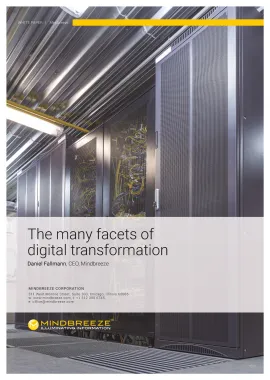How Human Cognitive Bias Impacts AI Decision Making
Humans make decisions every day. And that’s good — but there’s a problem with the way we make those decisions. It turns out that humans are biased in their own favor, and we don’t always see it. As AI continues to be adopted by businesses around the world, it’s important to remember that biases have been with us since the very beginning of technology. What's the best way to make sure your business makes the most optimal and beneficial decisions? You need to have a strong understanding of how human cognitive bias affects decision-making in every business, and how it can be minimized. People have a natural affinity for order, predictability, and familiarity. Unfortunately, it turns out this human bias can be harnessed quite well by algorithms. However, there are steps we can take today to mitigate this influence.
And that opens up the question: How do human cognitive biases impact AI? People are not always necessarily aware of biases inherent in their own systems and how they can inadvertently lead to dangerous outcomes. By acknowledging that, reduction in bias becomes possible. There have been quite a few improvements in building safeguards into AI systems. In certain cases, however, the opposite is true. When cognitive biases are factored into the development of devices, products, and services, it leads to stronger outcomes. Adjusting AI systems for human biases might actually be in the best interest of customers. This is partially due to mimicking our natural thought processes.
Cognitive Biases and AI
Cognitive biases are notorious for causing irrational behavior in people. However, it's not just humans who are vulnerable to cognitive biases, AI systems can and do suffer the same fate — especially when we fail to consider these biases while building them. AI has finally reached a point where it can make decisions for customers, employees, and even self-driving cars. While AI is often accused of being biased, a new report from the Future of Humanity Institute at Oxford University shows that human cognitive bias can actually help the algorithms reach better decisions. AI has the potential to vastly improve the decisions made by humans. But it’s also increasingly clear that today’s artificially intelligent systems can perpetuate human cognitive biases — and that could have devastating impacts on society.
There is growing concern that the way we view the world will shape our future. We should act to ensure our AI decisions are based on evidence and are not polluted by our own biases. As AI becomes more advanced, it is shaping up to be a game-changer for business, with the potential to transform how we work. As AI becomes increasingly adopted by businesses, preventing bias in AI decision-making has become a top concern. In general, AI is designed to make decisions based on a set of rules that are meant to be followed. However, when it's not able to, it can lead to some pretty unexpected results.
AI has already provided helpful solutions to a lot of problems faced by humans using applications like voice assistant technology, for example. Programs like Alexa and Siri have gotten pretty good at understanding how to parse human language. But there is a lot of potential for improvement. If we develop more techniques for moderating our social bias, we can ensure that our AI assistants are optimized to help us and accurately augment human judgment. This type of moderation can have a big impact on the robustness of the tool itself. Think about how helpful it can be for cold calling or preventing one-to-many email follow-ups.
As this trend continues, there are instances where it manifests in everyday situations, such as purchasing a car, financial decisions, and more. While AI is designed to make decisions based on findings from data, humans still have an influence. Once developed, these tools quickly work at scale. When extrapolated to real marketing use cases, the impact can increase, affecting the scalability and cost-efficiency of the whole system.
Many AI systems will suffer from confirmation bias, but if we are careful, we can leverage it to our advantage.
Are you ready to explore new ways to automate processes within your organization? Our guide to the many facets of digital transformation offers some additional insights.

